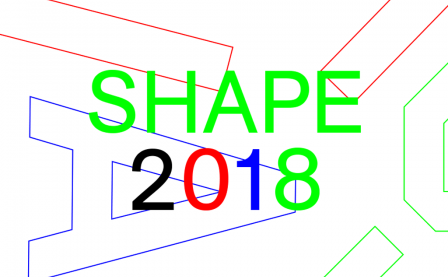Grime has typically been associated with the standardized meaning of the word; it was music with coarse and unpleasant textures, designed to incite a sense of hostility or discomfort. Just the mention of the word “grime,” in any context, has me thinking about albums like Extend and The Dark Side of the Sun — dubstep-flecked grit, rugged production, and slabs of fragmented noise that was often weirdly insatiable. Grime was always a viscous style of music, some haphazard Polaroid depicting a blurred snapshot of the urban underground, of dirt, of decay, a force that shook its audience to the core. But over the past few years, the genre has taken a steady turn, with the well-oiled finesse of Fatima Al Qadiri’s Desert Strike and the stark allure of Logos’s Cold Mission being a couple of personal favorites.
It seems curious, then, to come across an artist who on his debut full-length goes about borrowing traditional grime-associated traits — craggy beat patterns, stop/start rhythmic sequences, destructive samples (breaking glass, shotgun pump action, explosions) — but turns the dark and desolate side of the musical style on its head. Sure, Yamaneko is influenced by pioneers of the genre, but he is equally swayed by meditation tapes, and this gives the overall feel of Pixel Wave Embrace a surprisingly warm and distilled tone. Through merging those distinguishable attributes with a medium intended to help its listeners relax and reflect, the London-based producer has concocted a formula that’s in line with the abstractions Logos and Fatima have been championing of late.
Indeed, the meditation tape angle is a welcome twist, and it sets Yamaneko aside from other like-minded practitioners such as Jam City and Mumdance in their varying interpretations (the latter of which, along with Logos, sung Pixel’s praise upon its release). As a whole, the album is beautifully crafted and meticulously arranged; from the computer-game end credits of “Primrose Island” to the invasive jolt of “Tropics,” there is a feeling of cohesion that runs throughout. The pace only staggers when heavier grime tropes start to dominate, principally on “Accela Rush,” where the throbbing percussion casts a dingy shadow over the perfectly formed “~” and the gorgeous opener “Fragrance Transmission.” These tracks appear weightless, and this gives them a gentle air, even if they are dense enough to support the album’s peculiar premise.
But this isn’t just a preference for glossed-over synths and dreamy, ambient instrumentals. Where Pixel Wave Embrace works best is when the debauched nature of grime can still be recognized while meshing with effects that fit the feel of the cover art; pixelated trees, digital foliage, and flowing water, which has also been mentioned as a core influence on the album’s composition. “Slew Wave,” is a prime example of Yamaneko striking that balance; it opens with a round of gunfire, but soon sinks into a bulging bass line and a delicate synth pattern, recalling some Sega Genesis half-memory while hinting at the meditation tracks responsible for determining the album’s initial cassette format.
With its distinct mixture of otherwise estranged influences, Pixel Wave Embrace illustrates just how fine the line can be between working within an established genre and adding a new aesthetic dimension to it. In this case, the formula goes down a treat; from intrusive beats that rail against glossy effects to distinct and elaborate motifs that complement softer tones — I’m thinking of “Noises In The Wave Wires Like The Kissing Of The Sea” here, with rippling harmonies and delicate dissolves that sound impeccable against rough and disjointed vocal samples. The juxtaposition is an unlikely one, but it allows the artist to flex his compositional strengths while experimenting with sounds that would otherwise be far removed. Regardless of how the next wave of grime artists take their style forward, the accolades Yamaneko has received from his contemporaries indicate that all limits to possibility are nothing more than a vague and hazy mirage, fading away somewhere in the distance.
More about: Yamaneko




